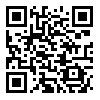year 8, Issue 6 (Summer 2019 2019)
Rooyesh 2019, 8(6): 233-240 |
Back to browse issues page
1- Psychology Department, Psychology & Education Faculty, University of Kharazmi , setayeshi_m@yahoo.com
2- University of Qom
2- University of Qom
Abstract: (1799 Views)
Different variables such as motivation, self-esteem, and learning methods can affect the learner during learning activity. Therefore, educational research has shown that motivation is one of the essential factors for the improvement of student performances. Using a person-oriented approach, the present study aimed to determine the motivational profiles (clusters) of students and to compare their self-control considering these profiles. This study was conducted with a comparative-descriptive method. The participants were 204 university of Qom students that were choose by multiple cluster sampling method. Participants completed the Tangeny self-control (2002) and Snyder hope scale (1991). The statistical methods was cluster analysis, ANOVA. Cluster analysis revealed three motivational profiles for the students: 38/2% of the subjects were placed in the low quantity motivation group, 38/7% were placed in the moderate quantity motivation group, the high quantity motivation group (25%). The behavioral self-control of low quantity motivation group was lower than the other clusters. The findings of this study will help those involved in the field of education make effective attempts by planning helpful educational program, so promote the students’ learning motivations, particularly the senior ones during the academic years.
Type of Article: Research |
Subject:
Health
Received: 2018/03/21 | Revised: 2019/11/3 | Accepted: 2019/04/15 | ePublished: 2019/08/23
Received: 2018/03/21 | Revised: 2019/11/3 | Accepted: 2019/04/15 | ePublished: 2019/08/23
| Rights and permissions | |
 |
This work is licensed under a Creative Commons Attribution-NonCommercial 4.0 International License. |



